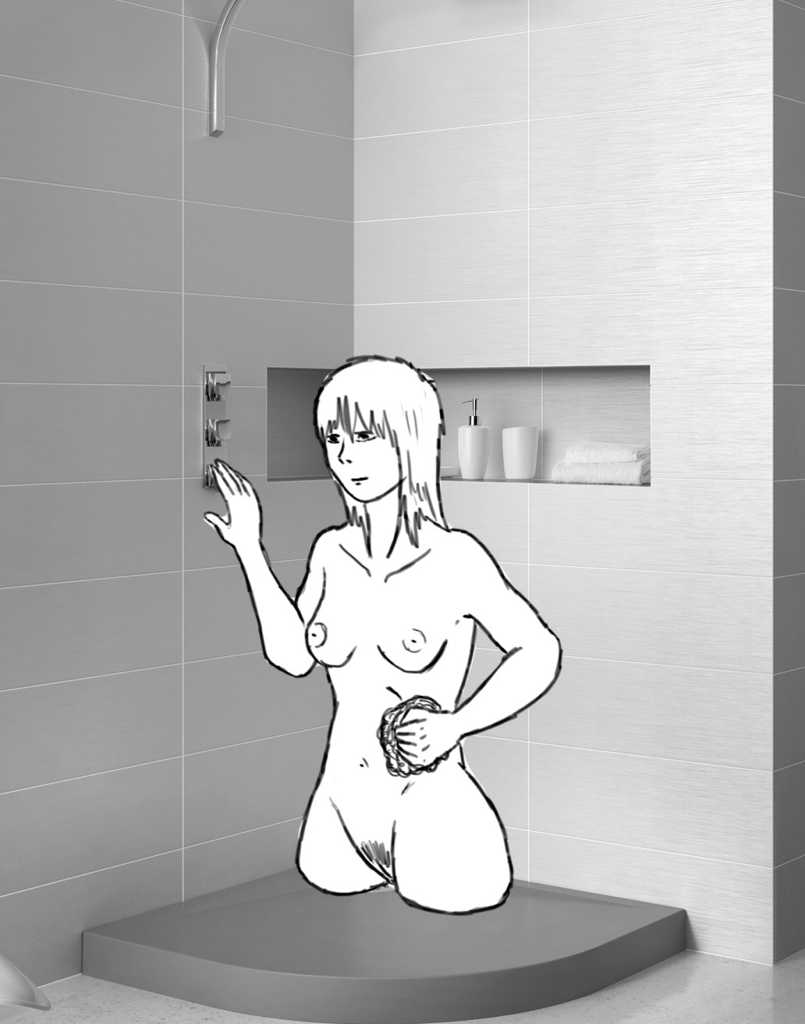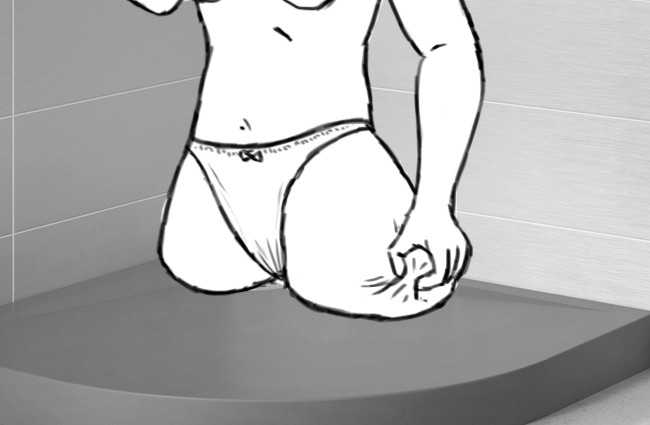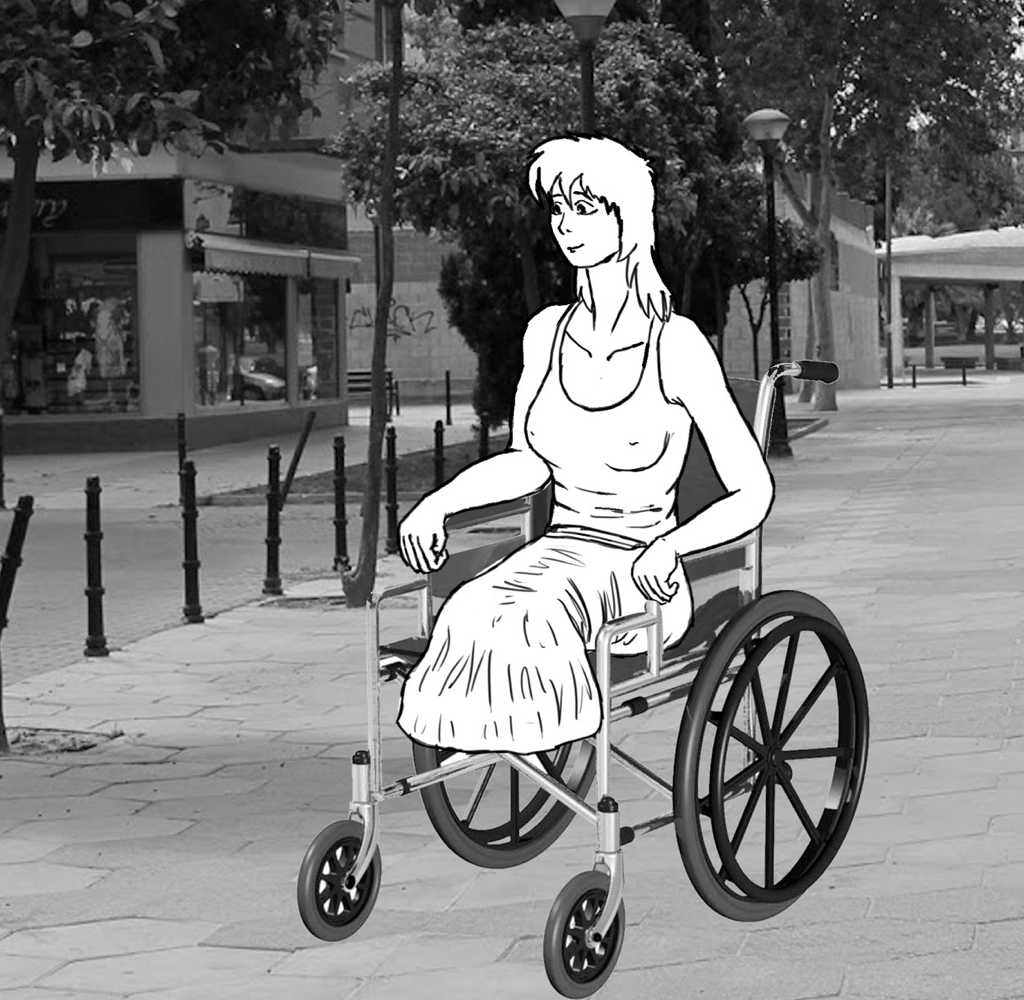The Change

When I was born, my parents were shocked to learn that I didn’t have legs. I had a pelvis, but the X-rays showed nothing resembling a femur. So, I grew up accepting the fact that two legs weren’t on the parts list describing my anatomy. By the time I had to start going to school, my parents bought me a wheelchair to roll around in. They were pleasantly surprised how little teasing I got from the other kids for my disability.
Conveniently I fit the existing paradigm of a double leg amputee, with existing different-ability infrastructure in place to allow me to make the most out of life. I graduated from high school, went to college, and majored in pre-med. Even some relatives who knew me and my drive were surprised when I got a full tuition and boarding scholarship for (specifically) congenitally disabled natural-born Americans with a GPA of 3.7 or higher: there was more competition than one might expect.
Landing a boyfriend in high school was no more difficult for me than any other girl. Indeed as for many women, the issue was filtering through the options. Any of them who made any sort of first date quip about how “accessible” I was (or similar) because I had no legs to spread quickly discovered that the first date was also their last date.
Elgin appreciated that aspect of me too, but truly loved me in other ways… at least as much as any high schoolers can stumble through something resembling real love. We were a decent item and loved each other as we could, however we were forced to break up once high school ended, as we were going to different universities in different states. I came to terms with this fact, and continued (figuratively) marching my way through life.
I got into medical school, specializing in congenital diseases. The workload was higher than in college, yet I breezed through the first year nonetheless. The grant money and seizing a primo opportunity allowed me to rent a decent home: a whole small house! It was all on one floor, so I was able to roll about it in my wheelchair freely without having to worry about stairs or elevators. Just about the only places I couldn’t go were places that only maintenance workers had to worry about, such as the attic and basement crawl spaces with plumbing, electricity, gas, etc. Couldn’t roll all the way into my shower, but could and did get close enough to hop and crawl, as had been my life before getting wheels.
It wasn’t until after my second year in med school that what I call “the change” started.

When I took a shower one day, I noticed that there was some fatty mass on each of the stumps where my legs would have been.
This truly scared me: as a medical student, I knew that one of the worst ways to die is getting cancer and not reporting it to a doctor. I’ve heard some scary stories of people who died of cancer because they were too afraid to tell a doctor.

So, the first thing I did that day was go to the teaching hospital affiliated with the university, and explained my problem. The doctor was fairly sympathetic regarding my condition and working with me directly, yet was fairly harsh to the other doctors, which disturbed me. {These are your colleagues!} I remember thinking, then {Hhhhh! That could be me getting his ire, some future year!}
He took some blood tests, and did an MRI scan of my stumps.
Waiting patiently for the results was difficult. Apparently Dr. Wavoff did not think my situation urgent enough to push the tests through faster.
Right about 24 hours after I’d reported for testing the day prior, I was in Dr. Wavoff’s office, meeting with him to go over the results, prognosis, and plan of action. The way he slightly grimaced as he repeatedly tapped the edge of the folder with my files on his glass-topped desk unsettled me.
“Your blood work is acceptable: mostly within normal ranges, other than being slightly anemic.”
“That could be a sign of cancer, couldn’t it?” the excited, anxious med student within me blurted out.
“Yes it could, but it’s precious weak evidence on its own” he quickly shot back, obviously struggling to be nice to me as a worried patient rather than let me know what he truly thought about my jumping so quickly and wildly to my premeditated conclusion. “As hopefully you’ll soon learn and commit to memory, we’d be expecting clear signs of an immune system response, possibly excepting immunocompromised individuals. Caught early enough and with no physical changes sensed by the patient, we might not expect to see anything on the imaging. In situations like yours where there’s been one or more distinct, worrisome physical changes, we weigh heavily on the imaging results.”
Here’s where I almost lost it to laughter: he did the thing where he pulled off his reading glasses kinda sideways as he looked up from my charts to make direct eye contact with me. If you don’t know what I’m talking about, go look at any number of 1950s or 1960s TV commercials or shows with expert doctors telling people “how it is”, with total authority. “There is absolutely nothing on your MRI suggesting cancer.” After that, he thankfully dropped the condescending authoritarian ’tude and actually acted like a teaching doctor with a med student in the room: he opened up the folder, holding it so I could see the MRI result prints in proper orientation. Using a capped pen as a pointer, he explained, “We see no especial blood vessel density, as we’d expect feeding a tumor of this size. As you’ll learn in your radiology imaging courses, this lighter density on the image is indicative of fatty tissue. Taken by itself, this set of images would be highly suggestive of something benign going on, though inconclusive. Taken together with the blood tests, the evidence of cancer is lacking.”
“So I don’t have cancer?”
He nodded. “Exceedingly unlikely. If you’ve not already encountered it, you’ll soon learn that while we in medicine would always prefer hundred percent black and white clear answers, those are rare indeed. I cannot give you a number for a percentage chance of having or not having cancer. Based upon my years of practice and the knowledge of our fine institution and the wisdom in our field from around the world, your reported symptoms and tests put you in the very low single digit percentage range for cancer.
“High percentage odds based on the totality of the evidence that it’s stored body fat. You’re a woman—genetic female—and as you know the hips are a common place on the body individuals of your biological gender tend to store fat. It’s unusual for it to be storing itself in a manner such that it feels and looks like very stubby new limbs—we’d expect the deposits to land on existing areas, such as hips and buttocks in this case. However if your genetics dictate what in common parlance is called saddlebag hip fat, tending to gather down lower, it could easily be the case that the fat is being directed to deposit as low as possible, and in sufficient quantities to push your dermis and epidermis out further. How would you describe your diet?”
“I’m not on a diet, Dr. Wavoff.”
“Your eating habits” he struggled not to growl in frustration.
“Oh” I blushed brightly. To this day as I type this for you, I still feel embarrassed about confusing common-parlance weight-loss or weight-management dieting with diet as one’s normal eating patterns. “Well… this is med school, and as you know classes are intense, so…”
His fidgety mannerisms suggested his patience was wearing thin.
I got to the point: “I eat a lot of prepared food: ramen, frozen pizzas, fast food–”
“–Please tell me not Cluck ’n’ Chuck” he interrupted.
“Who else delivers fried chicken to the home themselves at no extra charge without using a service like Door Dash?!” {Don’t get in the way of me and my Cluck ’n’ Chuck!} I remember thinking.
His mouth fell part-way open into a silent chuckle (chest convulsing, no audible sound), with a slow head shake. “What you need, my young potential future colleague, is an appointment with Edie Chew, the best dietician I know.” Being old school, he scribbled out her contact information on the top sheet of a small pad of paper, tearing it off with a flourish and handing it to me. If you think that there was any form of Internet-based contact information on that paper, you are wrong: not even an old-timey email address, much less something more useful of the social media ilk! “She’s a foodie, so she’ll be able to hook you up with options which work for your taste buds, schedule, and wallet, while at the same time being real food, or much closer thereto.”
Ms. Chew was gregarious and fun to be with, as well as a lot more thicc than I’d’ve expected from a hospital-sanctioned dietician. We didn’t eat together so I wouldn’t know, and people can have genetic and/or intestinal microbiome stuff going on, though I’d hazard a guess that even though she wasn’t outright fat, she likely rarely left much on her plate.
The diet she gave me was a standard low-saturated fat, low-cholesterol, high protein diet. She advised me to check back in in about a month to evaluate my progress.
Relieved that I didn’t have cancer, I checked out with my more healthful diet menu plan and let my insurance company worry about everything else.